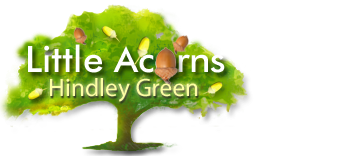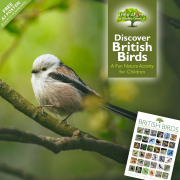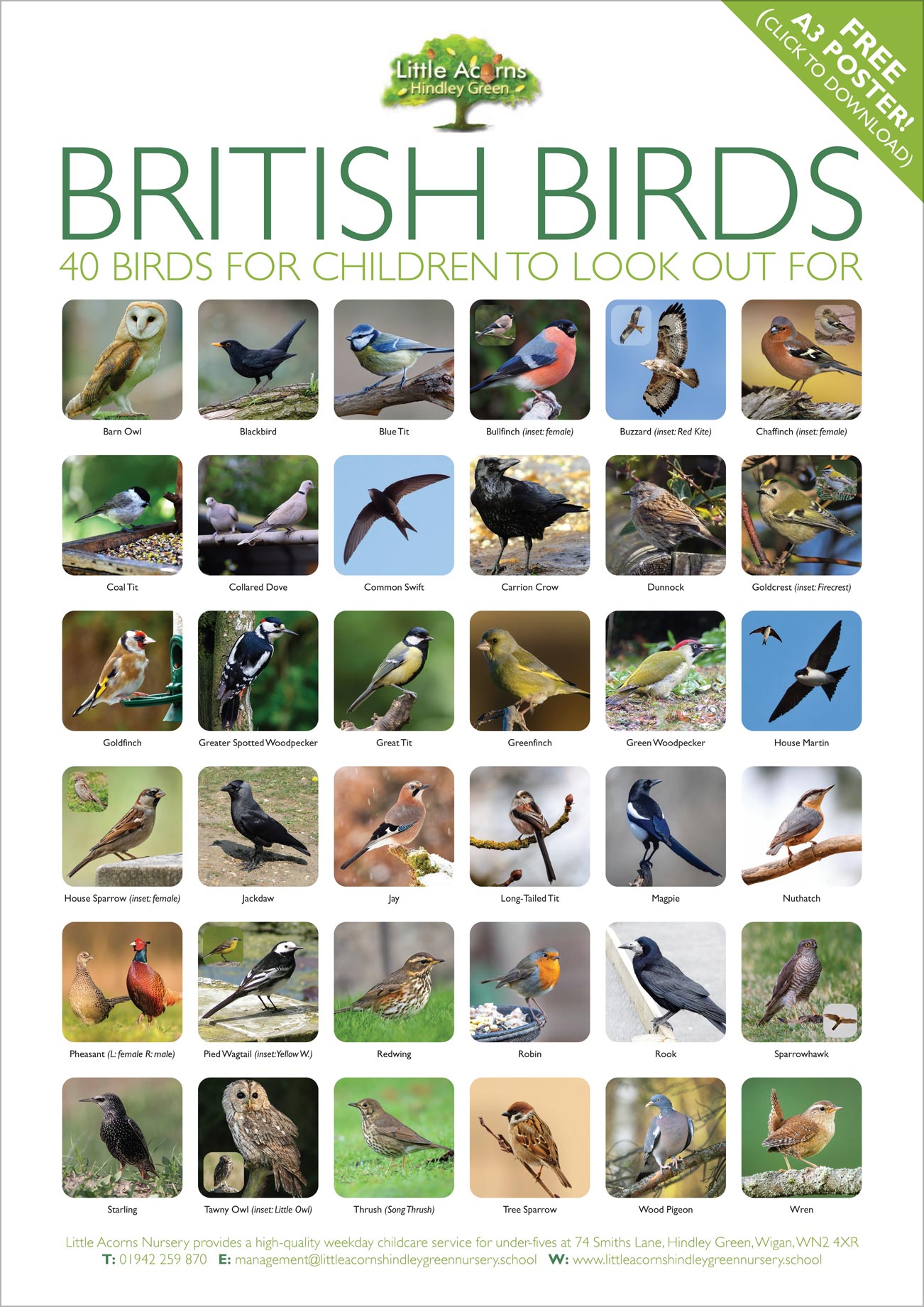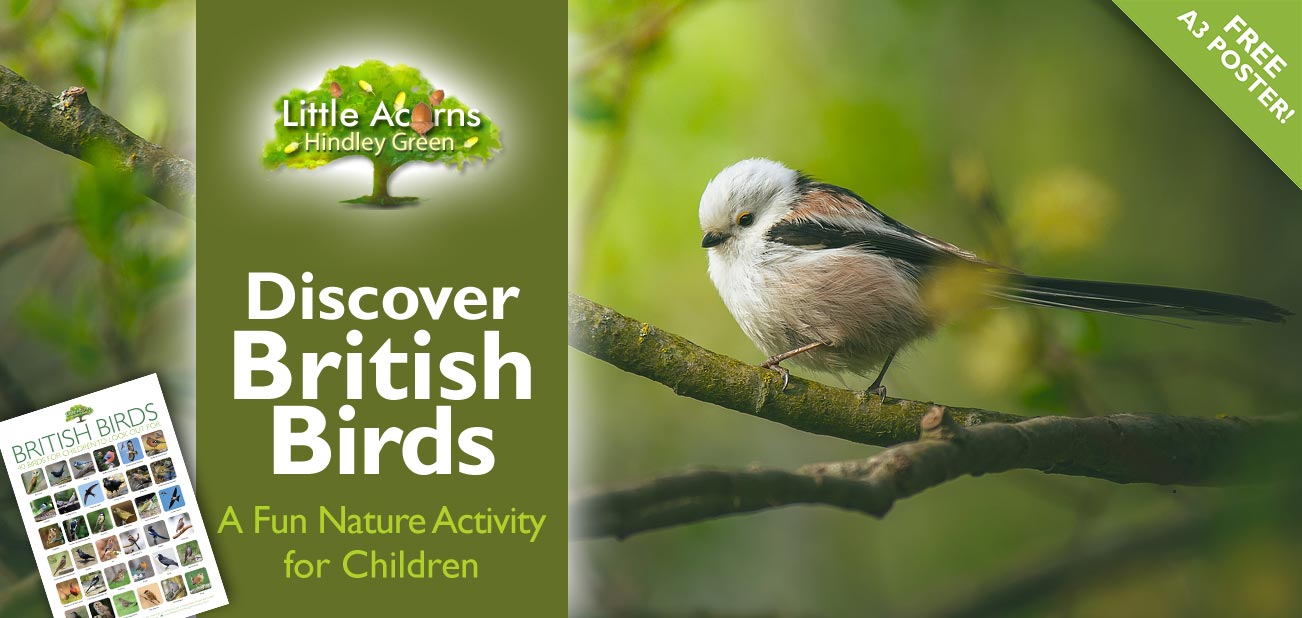
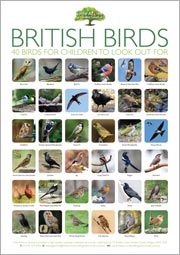 Today, in a follow-up to the butterfly-spotting activity that we published in May, we bring you a matching bird-spotting activity for children to take part in. The activity will help to nurture children’s interest in birds and nature, which is beneficial to children in a myriad of different ways. It’ll also encourage them to recharge in the fresh air, outdoors, and escape from electronic screens and toys for a while. Outdoor play is important for little ones and many studies have backed this up.
Today, in a follow-up to the butterfly-spotting activity that we published in May, we bring you a matching bird-spotting activity for children to take part in. The activity will help to nurture children’s interest in birds and nature, which is beneficial to children in a myriad of different ways. It’ll also encourage them to recharge in the fresh air, outdoors, and escape from electronic screens and toys for a while. Outdoor play is important for little ones and many studies have backed this up.
Free Bird Poster
Like before, today’s article comes with a free reference poster for families to download and print out. The poster features 40 different species of bird that can be found in Britain. Most are fairly common, with just a handful that are more shy or seen more rarely. Children, including those under five, can display the A3 poster on their bedroom or nursery wall, or print it out as a smaller hand-out to use as reference when they’re outdoors. The visual reference will allow children to see how many different birds they can spot over the course of a year, we suggest. Supervising adults can help them to learn the bird names too, as we appreciate the youngest may not yet be able to read the names unaided. Take a look at the poster preview below and download it for your child today.
Preview of the Free Bird Poster:
Download Instructions
Depending on your settings, you can usually left- or right-click the image above (or this link) to either open it on screen or save it to your device. Once opened in Acrobat Reader ∞, your child will also be able to view the images large, by zooming in, to get all the fine detail. If printing out, we recommend using high-quality printing paper and the finest colour settings for best results. Print at A3 to use as a poster or A4 to use as hand-outs for your children to take outdoors.
Tips for Spotting Birds
As well as being a fun, nature-based activity, bird spotting can teach children valuable skills like patience, stealth, observation, perseverance, critical thinking and empathy to name just a few. With that in mind, here are some tips that may help children to see more types of birds when taking part in this activity.
- Try different locations and a variety of natural environments, including at different times of the year (spring to autumn). Your child will see different types of birds by using this approach. Please note, however, that we have not included waterfowl in our poster, although may keep that option up our sleeves for a future poster/activity.
- Teach children to keep movements and sound minimal when they’re waiting for birds to come to a particular spot, so the birds are not frightened away.
- If moving, for example through a forest, moving quietly and stealthily will ensure that children will see more types of birds. Care even over each footstep will help if it means that children will avoid making a ‘crack’ because they stepped on a twig. Such an approach will also help them hone their balance and gross motor skills, as well as make the activity feel more exciting.
- Attracting birds with the right kinds of bird food will help with this activity. In gardens, ‘peanut cakes’, suet seed balls, sunflower ‘hearts’ (seeds with the outer husk removed) and, sparingly, grated Cheddar cheese are always popular.
- The use of binoculars or monoculars will help spot birds further away. For safety, children should use them only under adult supervision and avoid pointing them towards the sun and other bright objects.
- Teach children to also listen out for the various bird calls, as those can give away the location and even type of birds.
- Encourage children to develop a ‘keen eye’, i.e. good observational skills that are proactive as well as reactive.
Why This Activity is Important
As well as being fun, educational and beneficial to children through time spent in nature, bird-spotting helps to draw children’s attention to the plight of birds, other wild creatures and the natural environment. Sadly, the number of birds has dropped by nearly 60% in the UK since 1979. The population of house sparrows alone has declined by almost 22 million in the last 57 years. The Chief Executive of the RSPB stated the following after 2023’s Big Garden Birdwatch:
“The numbers speak for themselves when it comes to the startling declines of some of our once common birds…
We are in a nature and climate emergency and we’ve lost 38 million birds from our skies in the last 50 years.”
Nature activities like butterfly-spotting, bird-spotting, country walks and outdoor play around nature will help foster children’s interest in the Great Outdoors and the simple pleasures associated with spending time in the natural environment. That alone is very good for both body and soul. In parallel, though, such activities are also likely to encourage an interest in ecology, conservation, reversing habitat loss, and eco-friendly lifestyles. All of these benefit the world itself. Moreover, such interests often last a lifetime. So, this simple type of children’s activity can have a real domino effect.
Nature-Based Activities for Under-5s at Little Acorns Nursery, Hindley Green
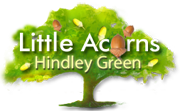
 Because spending time around nature is so important, the team at Little Acorns Nursery in Hindley Green ensure that children get good access to nature, nature-based activities and even natural materials. This approach is backed up by our adoption of ‘Hygge’ at the setting and plans to introduce Forest School. These, together with our first-class approach to early years childcare, give babies, toddlers and preschoolers a great start in life, giving them all the tools to absolutely thrive. As well as that, we also support all Government-funded childcare places for eligible families.
Because spending time around nature is so important, the team at Little Acorns Nursery in Hindley Green ensure that children get good access to nature, nature-based activities and even natural materials. This approach is backed up by our adoption of ‘Hygge’ at the setting and plans to introduce Forest School. These, together with our first-class approach to early years childcare, give babies, toddlers and preschoolers a great start in life, giving them all the tools to absolutely thrive. As well as that, we also support all Government-funded childcare places for eligible families.
Why not register your little one for a childcare place at Little Acorns Nursery in Hindley Green, near Wigan? Get in touch using a button below and we’ll be happy to show you and your little one around, answer questions and register them for a nursery place.
Little Acorns is a high-quality nursery & preschool in Hindley Green, near Wigan. We are also nearby to Bickershaw, Leigh, Atherton, Westhoughton, Ince-in-Makerfield, Platt Bridge, Tyldesley, Bolton and Greater Manchester, so may also suit families living or working in those locations.
Safety & Well-Being
Before we sign off from this post, we should mention the topic of safety and well-being for children. Vigilance around these is critical and seldom more crucial than when children are spending time outdoors. Children, especially the very young, should therefore be closely supervised by a responsible adult at all times, paying special attention to hazards including ponds and water sources of any kind, poisonous plants, toxic chemicals (weedkiller, pest killer etc.), trip hazards, nasty drops and uneven ground, sources of germs, barbed wire and other sharp objects, roads, railways and traffic, potential allergens, choking hazards, stranger danger, risks around becoming lost, and so on. Parents/adults will need to constantly watch out for potential risks and teach children to do so too. This list is not exhaustive, so do your research/assessments.
